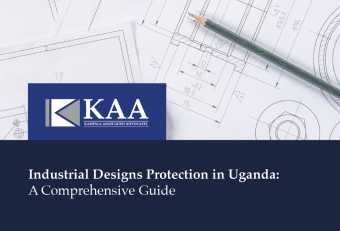Background
Mukwano Enterprises Ltd (Applicant) is a company incorporated in Uganda carrying on the business of property development and real estate. On 13th July 2017, URA (Respondent) carried out an audit on the applicant, issued an assessment of Shs 3,250,011,968 by disallowing expenses for the amortization of lease premiums claiming that they were capital expenditure and not revenue expenditure to which Mukwano Enterprises objected.
Applicant’s argument
The applicant maintained that the expenses are deductible as revenue expenditure since it is in the business of property development and real estate by buying, selling, leasing and letting out property. The applicant submitted that the leases it obtains are operating and not finance leases and therefore it was entitled to claim deductions. Mukwano further relied on the International Accounting Standards -IAS to justify the amortization of operating leases.
URA’s arguments
In reply, the respondent argued that that payment of premium and rent for the acquisition of leases is a capital expense and forms the cost base of the applicant’s assets hence are non-deductible.
The Tax Appeal’s Tribunal’s decision.
The Tribunal held that that Mukwano Enterprises (the applicant) was entitled to have the rent and premium paid by it deducted as allowable expenses.
However, the applicant was not entitled to have the said expenses amortized.
The Tribunal specifically held:
- That the applicant is a dealer in land as it is in the business of real estate and property development and land transactions are its modus operandi. The land or leases it obtains are its stock in trade or circulating capital. Any expenses it incurs in acquiring the said leases, that is the rent and premium paid should be considered as revenue expenditure and are therefore allowable deductions.
- The Tribunal further held that a finance lease is one which transfers all the risks and rewards incidental to ownership while an operating lease is one which does not transfer all the risks and rewards incidental to ownership.
- If we are to use the words of the international accounting standards a tenancy may be similar to an operating lease as it does not confer ownership while a long term lease is similar to a finance lease as it confers ownership. However in the vivo case ownership in a lease depends on the extent of exclusivity of control, while in an operating or finance lease ownership depends on transfer or risks and rewards.
- On application of accounting standards with regard to amortization of premium and rent of operating leases, the Tribunal the income tax Act does not specifically states that it shall apply international accounting standards. If it has intended for it to be applied it would have clearly said so. Therefore it is implicitly that International Accounting Standards may be used as long as they are in harmony with the income tax act.
- Regarding Section 91(1)(c), the Tribunal found that URA could re-characterize a transaction to reflect the substance and not form. The Tribunal held that where a taxpayer pays rent and premium in a lump sum but amortizes it using accounting principles and the commissioner re-characterizes the transaction to reflect the substance or the actual amount paid by the tax payer the Tribunal will not interfere with the commissioner’s discretion unless it is done illegally, grossly unreasonable or with impropriety.
Conclusion
The implication of this decision is that it cements the earlier position that rent and premium paid could in some cases be allowed as a deductable expense. However, the rent and premium could not be amortized.





